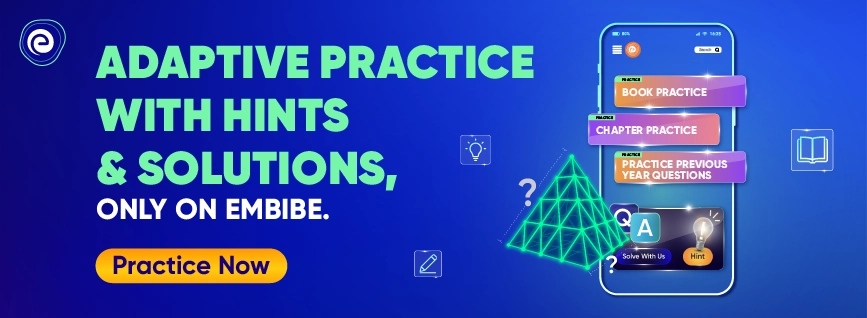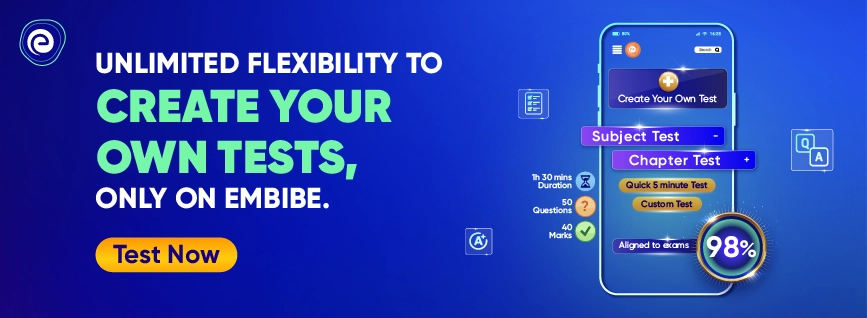- Written by Harshitha A
- Last Modified on 29-07-2025
CAMBRIDGE BOARD UPPER SECONDARY IGCSE 2023
The Cambridge Assessment International Education organises the International General Certificate of Secondary Education (IGCSE) Upper Secondary Exam. It is a global organisation that provides world-leading academic research, learning, and assessment globally, backed by first-class teaching and research departments of the University of Cambridge. The Cambridge IGCSE is an international qualification conducted for students aged 14 to 16 years. Every year, the exam grabs approximately 500,000 entries from 144 countries. It is a two-year course that begins in year 9. Students will have to attend external exams in year 10.
For some of the subjects, there is a choice between core and extended curricula. The core curriculum is drafted considering the subject overview. It is suitable for students who can secure a C grade and a G grade. However, the extended curriculum is drafted for the students who can secure grade A and grade E. Students can select either of the two curriculum options based on their abilities. The core subjects in Secondary school are English, Mathematics, Science, History, and Geography. Other subjects include Information and Communications Technology (ICT), Music, Art and Design, Physical Education, and languages like French, and Spanish, etc.,
Exam Summary
Cambridge Board Upper Secondary IGCSE Exam Summary 2023
IGCSE is equivalent to grade 10 examinations like CBSE, ICSE, and all the other state board grade 10 level education in India. The Cambridge IGCSE curriculum offers a variety of paths for students with a range of skills, including their mother tongues.
The IGCSE examinations are conducted in the month of February/March every year. Students appearing for the exam can download the exam timetable/date sheet in PDF format from the official website of IGCSE. The candidate must submit the application form before the deadline to attend the examination. The exam results are declared in the month of May. Before knowing more details about the exam, let us have an overview.
| Particulars |
Details |
| Name of the Exam |
Cambridge Board Upper Secondary IGCSE 2023 |
| Commonly Known as |
Upper Secondary IGCSE 2023 |
| Conducting Body |
Cambridge University Press & Assessment |
| Student Age Eligibility |
14 to 16 years |
| Student Academic Eligibility |
Class 9 and Class 10 |
| Academic Session |
2022-23 |
| Course of the Exam |
Two Years Course |
Cambridge Board Upper Secondary IGCSE 2023 Official Website Link
https://www.cambridgeinternational.org/programmes-and-qualifications/cambridge-upper-secondary/
Cambridge Board Upper Secondary IGCSE Application Process/Registration Process
Students who enrolled themselves in any Cambridge IGCSE School should apply and register themselves to take the exam through their respective schools. The students need to fill out the application form and register themselves before the deadline to attend the exam.
IGCSE Application Form: Steps to Apply
The following steps are to be followed by the students to complete the registration process for Cambridge Board Upper Secondary IGCSE.
- 1st Step: Every candidate should submit only one registration form for the examination.
- 2nd Step: Enter the information required and verify the details. Upper Case must be followed while entering the details.
- 3rd Step: Enter the details of any one of the documents: Identification Card, Passport, or Driver’s Permit.
- 4th Step: Enter the appropriate syllabus title and syllabus code wherever applicable
- 5th Step: Enter your signature on the registration form and attach a passport-size photograph (latest) in the space provided.
- 6th Step: Make sure that your bank draft contains the correct amount of pounds sterling.
- 7th Step: Retain your bank draft receipt
IGCSE Application Form Payment Rules
- Only bank drafts are accepted and can be purchased at any commercial bank.
- Bank drafts for the total fees should be in pounds sterling
- The fees include subject fee and late entry fee (if applicable)
- The bank drafts should be made payable to the upper-level educational institute Ltd.
Cambridge Board Upper Secondary IGCSE Exam Pattern 2023
There will be only one stage for each subject under the Cambridge International Upper Secondary IGCSE exam. The scoring pattern is detailed in the examination blueprint. There is no negative marking for any question.
Exam Pattern Details: Total time
The exam duration for the examination for each subject has been given against some key subjects in the “Exam Calendar” subgroup below.
IGCSE Grading System
After writing the exam, the students will be given the grades according to the percentage of marks obtained by them as per the following table:
| IGCSE Grade |
Marks Range |
| A+ |
90-100 |
| A |
80-89 |
| B |
70-79 |
| C |
60-69 |
| D |
50-59 |
| E |
40-49 |
| F |
30-39 |
| G |
20-29 |
Cambridge Board Upper Secondary IGCSE Exam Syllabus
Knowing the syllabus is the primary step to initiating exam preparation. It helps students know what topics are covered and how to allocate ample time for each subject. Covering all the topics of the below-mentioned syllabus helps students to easily score good marks in the exam. Students can get the subject-wise syllabus in the table below.
IGCSE Upper Secondary Maths Syllabus
Maths as a subject requires conceptual clarity and a strong foundation. Students must ensure to get all their concepts cleared before solving numerical problems. They can find the IGCSE Upper Secondary Maths syllabus in the table below:
|
Chapter No.
|
Chapter Name
|
|
1
|
Reviewing Number Concepts
|
|
2
|
Fractions and Standard Form
|
|
3
|
Understanding Measurement
|
|
4
|
Managing Money
|
|
5
|
Ratio, Rate and Proportion
|
|
6
|
Making Sense of Algebra
|
|
7
|
Equations and Rearranging Formulae
|
|
8
|
Sequences and Sets
|
|
9
|
Further Solving of Equations and Inequalities
|
|
10
|
Curved Graphs
|
|
11
|
More Equations, Formulae and Functions
|
|
12
|
Lines, Angles and Shapes
|
|
13
|
Perimeter, Area and Volume
|
|
14
|
Straight Lines and Quadratic Equations
|
|
15
|
Pythagoras Theorem and Similar Shapes
|
|
16
|
Symmetry
|
|
17
|
Vectors and Transformations
|
|
18
|
Collecting, Organising and Displaying Data
|
|
19
|
Introduction to Probability
|
|
20
|
Averages and Measures of Spread
|
|
21
|
Scatter Diagrams and Correlation
|
|
22
|
Histograms and Frequency Distribution
|
|
23
|
Diagrams
|
|
24
|
Probability Using Tree Diagrams and Venn Diagrams
|
|
25
|
Scale Drawings, Bearings and Trigonometry
|
IGCSE Upper Secondary Physics Syllabus
Physics is a subject that requires clear concepts and rigorous practice as many concepts have numerical problems. Students should also try to understand derivations, laws, and theories to ace the exam. They can find the IGCSE Upper Secondary Physics syllabus in the table below:
|
Chapter No.
|
Chapter Name
|
|
1
|
Making Measurement
|
|
2
|
Describing Motion
|
|
3
|
Forces and Motion
|
|
4
|
Turning Effects of Force
|
|
5
|
Forces and Matter
|
|
6
|
Energy Transformations and Energy Transfers
|
|
7
|
Energy Resources
|
|
8
|
Work and Power
|
|
9
|
The Kinetic Model of Matter
|
|
10
|
Thermal Properties of Matter
|
|
11
|
Thermal Energy Transfers
|
|
12
|
Sound
|
|
13
|
Light
|
|
14
|
Properties of Waves
|
|
15
|
Spectra
|
|
16
|
Magnetism
|
|
17
|
Static Electricity
|
|
18
|
Electrical Quantities
|
|
19
|
Electric Circuits
|
|
20
|
Electromagnetic Forces
|
|
21
|
Electromagnetic Induction
|
|
22
|
The Nuclear Atom
|
|
23
|
Radioactivity
|
IGCSE Upper Secondary Chemistry Syllabus
Chemistry involves chemical reactions, properties of elements and compounds, their uses, and many more. Students should refer to the syllabus whenever they are preparing for the exam. The table below provides the syllabus for IGCSE Upper Secondary Chemistry:
|
Chapter No.
|
Chapter Name
|
|
1
|
States of Matter
|
|
2
|
Using Moles
|
|
3
|
Redox Reactions
|
|
4
|
Electricity and Chemical Change
|
|
5
|
Energy Changes, and Reversible Reactions
|
|
6
|
The Speed of a Reaction
|
|
7
|
Separating Substances
|
|
8
|
Atoms and Elements
|
|
9
|
Atoms Combining
|
|
10
|
Reacting Masses and Chemical Equations
|
|
11
|
Acids and Bases
|
|
12
|
The Periodic Table
|
|
13
|
The Behaviour of Metals
|
|
14
|
Making Use of Metals
|
|
15
|
Air and Water
|
|
16
|
Some Non-metals and their Compounds
|
|
17
|
In the Lab
|
|
18
|
Organic Chemistry
|
|
19
|
Polymers
|
IGCSE Upper Secondary Biology Syllabus
Biology deals with living beings, their processes, structure, mechanisms, and so much more. Students should ensure that they are able to cover all the theoretical concepts of Biology. They can refer to the table below for the IGCSE Upper Secondary Biology syllabus:
|
Chapter No.
|
Chapter Name
|
|
1
|
Classification
|
|
2
|
Cells
|
|
3
|
Movement in and out of Cells
|
|
4
|
The Chemicals of Life( Biological Molecules)
|
|
5
|
Enzymes
|
|
6
|
Plant Nutrition
|
|
7
|
Animal Nutrition
|
|
8
|
Transport in Plants
|
|
9
|
Transport in Animals
|
|
10
|
Diseases and Immunity
|
|
11
|
Respiration and Gas Exchange
|
|
12
|
Excretion in Human
|
|
13
|
Coordination and Response
|
|
14
|
Drugs
|
|
15
|
Reproduction
|
|
16
|
Methods of Birth Control in Humans
|
|
17
|
Inheritance
|
|
18
|
Variation and Natural Selection
|
|
19
|
Organisms and their Environment
|
|
20
|
Human Influences on Ecosystem
|
|
21
|
Biotechnology and Genetic Engineering
|
Cambridge Board Upper Secondary IGCSE Exam Blueprint
Preparation Tips
The exam blueprint gives students an idea about the marking scheme, exam layout, time duration, and other information that can help students prepare well for the exam. They should refer to the blueprint to strategise their studies and come up with a proper timetable to study all the subjects efficiently. Students can find the IGCSE Upper Secondary blueprint in the following sections.
Examination Blueprint for English (First Language) (Subject Code: 0500)
To score maximum marks in English, students must develop a natural flair for the English language. This helps students to attempt the exam with ease and confidence. Reading newspapers and books that impart good vocabulary will help students to score good marks in English.
IGCSE Assessment Overview
Students must take (Paper 1 and Paper 2) or Component 3 from the details mentioned below.
| Paper-1 |
| Duration |
2 hours |
| Reading |
50% |
| Total |
80 marks |
| |
Structured and extended writing questions
Questions will be based on three reading texts
Externally assessed |
| |
| Paper-2 |
| Duration |
2 hours |
| Directed Writing and Composition 50% |
50% |
| Total |
80 marks |
| |
Extended writing question and a composition task
Externally assessed |
| Component-3 |
| Coursework Portfolio |
50% |
| Total Marks |
80 marks |
| Total |
Three extended writing assignments
Internally assessed and externally moderated |
Centres may also choose to enter candidates for the Speaking and Listening Test. Marks for this optional component do not contribute to the overall grade candidates receive for the written components. Instead, where candidates perform to an appropriate standard, certificates record achievement of grades 1 (high) to 5 (low)
| Component-4 (Speaking and Listening Test) |
| Duration |
Approx. 10–12 minutes |
| Total Marks |
40 marks |
| |
Separately endorsed
Individual Talk and Conversation
Internally assessed and externally moderated |
Assessment objectives as a percentage of the qualification
Students will be assessed for their performance in English based on their reading, writing and speaking. Skills Here, AO1, AO2, AO3 and AO4 mentioned are the assessment objectives that determine how well the student can read, write and speak the language of English.
| Assessment Objective |
Weighting in IGCSE % |
| AO1 Reading |
50 |
| AO2 Writing |
50 |
| AO3 Speaking and listening |
Separately Endorsed |
Assessment objectives as a percentage of each component
| Assessment objective |
Weighting in components % |
| Paper 1 |
Paper 2 and component 3 |
Component 4 |
| AO1 Reading |
80 |
20 |
0 |
| AO2 Writing |
20 |
80 |
0 |
| AO3 Speaking and listening |
0 |
0 |
100 |
| Total |
100 |
100 |
100 |
Examination Blueprint for Mathematics (Subject Code: 0580)
As Mathematics requires a lot of analytical thinking, students must prepare for the exam with a good focus. Numerical abilities such as quick calculations must be enhanced to develop speed and accuracy in problem-solving.
| Components |
Number % |
Algebra % |
Shape and space % |
Probability and Statistics % |
| Core (Papers 1 and 3) |
30-35 |
20-25 |
30-35 |
10-15 |
| Extended (Papers 2 and 4) |
15-20 |
35-40 |
30-35 |
10-15 |
| Core Candidates |
Extended Candidates |
Paper 1 (Core)
Duration: 1 hour
35%
Total: 56 marks
Short-answer questions
Questions will be based on the Core curriculum
Externally assessed |
Paper 2 (Extended)
Duration: 1 hour 30 minutes
35%
Total 70 marks
Short-answer questions Questions will be based on the Extended curriculum
Externally assessed |
| |
|
| and |
and |
Paper 3 (Core)
Duration: 2 hours
65%
Total: 104 marks
Structured questions Questions will be based on the Core curriculum
Externally assessed |
Paper 4 (Extended)
2 hours 30 minutes
65%
Total Marks: 130 marks
Structured questions Questions will be based on the Extended curriculum
Externally assessed |
- Candidates should have a scientific calculator for all papers.
- Three significant figures will be required in answers (or one decimal place for answers in degrees) except where otherwise stated.
- Candidates should use the value of π from their calculator or the value of 3.142.
Weighting for assessment objectives
The approximate weightings allocated to each of the assessment objectives (AOs) are summarised below.
Assessment Objectives as a Percentage of the Core Qualification
To qualify in Mathematics, students must have good knowledge and understanding of mathematical techniques and good reasoning and interpreting skills. The AO1 and AO2 objectives mentioned below asses the same about the student’s performance in Mathematics.
| Assessment objective |
Weighting in IGCSE % |
| AO1 |
Demonstrate knowledge and understanding of mathematical techniques |
60-70 |
| AO2 |
Reason, interpret and communicate mathematically when solving problems |
30-40 |
Assessment Objectives as a Percentage of the Extended Qualification
| Assessment objective |
Weighting in IGCSE % |
| AO1 |
Demonstrate knowledge and understanding of mathematical techniques |
40-50 |
| AO2 |
Reason, interpret and communicate mathematically when solving problems |
50-60 |
Assessment Objectives as a Percentage of Each Component
| Assessment objective |
Weighting in Components % |
| Paper 1 |
Paper 2 |
Paper 3 |
Paper 4 |
| AO1 |
Demonstrate knowledge and understanding of mathematical techniques |
60-70 |
40-50 |
60-70 |
40-50 |
| AO2 |
Reason, interpret and communicate mathematically when solving problems |
30-40 |
50-60 |
30-40 |
50-60 |
Assessment Objectives as a Percentage of Each Component
| Assessment objective |
Weighting in Components % |
| Paper 1 |
Paper 2 |
Paper 3 |
Paper 4 |
| AO1 |
Demonstrate knowledge and understanding of mathematical techniques |
60-70 |
40-50 |
60-70 |
40-50 |
| AO2 |
Reason, interpret and communicate mathematically when solving problems |
30-40 |
50-60 |
30-40 |
50-60 |
Examination Blueprint for Physics (Subject Code: 0625)
Performing well in the Physics exam depends on how well a student has understood the textbook concepts. All the problems must be solved without fail and the formulas must be revised frequently.
| Core Candidates Take |
Extended Candidates Take |
Paper 1
45 minutes
Multiple Choice (Core) 30%
Total: 40 marks
40 four-option multiple-choice questions
Questions will be based on the Core subject content
Externally assessed |
Paper 2
45 minutes
Multiple Choice (Extended) 30%
Total:40 marks
40 four-option multiple-choice questions
Questions will be based on the Extended subject content (Core and Supplement)
Externally assessed |
| and Core candidates take: |
and Extended candidates take: |
Paper 3
Duration: 1 hour 15 minutes
Theory (Core) 50%
Total: 80 marks
Short-answer and structured questions
Questions will be based on the Core subject content
Externally assessed |
Paper 4
Duration: 1 hour 15 minutes
Theory (Extended) 50%
80 marks Short-answer and structured questions
Questions will be based on the Extended subject content (Core and Supplement)
Externally assessed |
| All candidates take either: |
or: |
Paper 5
Duration: 1 hour 15 minutes
Practical Test 20%
Total: 40 marks
Questions will be based on the experimental skills stated in Section 4 of the detailed syllabus document (Link provided above)
Externally assessed |
Paper 6
Duration: 1 hour
Alternative to Practical 20%
Total: 40 marks
Questions will be based on the experimental skills in Section 4 of the detailed syllabus document (Link provided above)
Externally assessed |
| Total Marks for Core Candidates: 160 |
Total Marks for Extended Candidates: 160 |
Weighting for assessment objectives
The approximate weightings allocated to each of the assessment objectives (AOs) are summarised below.
Assessment objectives as a percentage of the qualification
Subject knowledge, problem-solving, experimental and investigative skills are some of the factors taken into account for evaluating the student’s performance in Physics. Students cna check the table below for the all the details.
| Assessment Objective |
Weighting in IGCSE % |
| AO1 Knowledge with understanding |
50 |
| AO2 Handling information and problem-solving |
30 |
| AO3 Experimental skills and investigations |
20 |
| Total |
100 |
Assessment objectives as a percentage of each component
| Assessment objective |
Weighting in components % |
| Papers 1 and 2 |
Papers 3 and 4 |
Papers 5 and 6 |
| AO1 Knowledge with understanding |
63 |
63 |
0 |
| AO2 Handling information and problem-solving |
37 |
37 |
0 |
| AO3 Experimental skills and investigations |
0 |
0 |
100 |
| Total |
100 |
100 |
100 |
Examination Blueprint for Chemistry (Subject Code: 0620)
Practicing the chemical equations play an important role in Chemistry exam preparation. Also, students must gain a deep understanding of the textbook concepts along with proficiency in answering both theory and practical questions.
| Core Candidates |
Extended Candidates |
Paper 1
45 minutes
Multiple Choice (Core) 30%
Total: 40 marks
40 four-option multiple-choice questions
Questions will be based on the Core subject content
Externally assessed |
Paper 2
45 minutes
Multiple Choice (Extended) 30%
Total:40 marks
40 four-option multiple-choice questions
Questions will be based on the Extended subject content (Core and Supplement)
Externally assessed |
| and Core candidates take: |
and Extended candidates take: |
Paper 3
Duration: 1 hour 15 minutes
Theory (Core) 50%
Total: 80 marks
Short-answer and structured questions
Questions will be based on the Core subject content
Externally assessed |
Paper 4
Duration: 1 hour 15 minutes
Theory (Extended) 50%
80 marks Short-answer and structured questions
Questions will be based on the Extended subject content (Core and Supplement)
Externally assessed |
| All candidates take either: |
or: |
Paper 5
Duration: 1 hour 15 minutes
Practical Test 20%
Total: 40 marks
Questions will be based on the experimental skills stated in Section 4 of the detailed syllabus document (Link provided above)
Externally assessed |
Paper 6
Duration: 1 hour
Alternative to Practical 20%
Total: 40 marks
Questions will be based on the experimental skills in Section 4 of the detailed syllabus document (Link provided above)
Externally assessed |
| Total Marks for Core Candidates: 160 |
Total Marks for Extended Candidates: 160 |
Weighting for assessment objectives
The approximate weightings allocated to each of the assessment objectives (AOs) are summarised below.
Assessment objectives as a percentage of the qualification
The assessment criteria for qualifying for the Chemistry exam include the student’s subject knowledge of Chemistry, experimental and investigative skills, and problem-solving and information-handling skills. The table mentioned below can be referred to for a detailed explanation of the same.
| Assessment Objective |
Weighting in IGCSE % |
| AO1 Knowledge with understanding |
50 |
| AO2 Handling information and problem-solving |
30 |
| AO3 Experimental skills and investigations |
20 |
| Total |
100 |
Assessment objectives as a percentage of each component
| Assessment objective |
Weighting in components % |
| Papers 1 and 2 |
Papers 3 and 4 |
Papers 5 and 6 |
| AO1 Knowledge with understanding |
63 |
63 |
0 |
| AO2 Handling information and problem-solving |
37 |
37 |
0 |
| AO3 Experimental skills and investigations |
0 |
0 |
100 |
| Total |
100 |
100 |
100 |
Examination Blueprint for Biology (Subject Code: 0610)
To ace the Biology exam with confidence, students must study and understand the textbook concepts in detail. Learning the concepts using video explanations can be much more beneficial as students will be able to grasp the concepts easily.
| Core Candidates |
Extended Candidates |
Paper 1
45 minutes
Multiple Choice (Core) 30%
Total: 40 marks
40 four-option multiple-choice questions
Questions will be based on the Core subject content
Externally assessed |
Paper 2
45 minutes
Multiple Choice (Extended) 30%
Total:40 marks
40 four-option multiple-choice questions
Questions will be based on the Extended subject content (Core and Supplement)
Externally assessed |
| and Core candidates take: |
and Extended candidates take: |
Paper 3
Duration: 1 hour 15 minutes
Theory (Core) 50%
Total: 80 marks
Short-answer and structured questions
Questions will be based on the Core subject content
Externally assessed |
Paper 4
Duration: 1 hour 15 minutes
Theory (Extended) 50%
80 marks Short-answer and structured questions
Questions will be based on the Extended subject content (Core and Supplement)
Externally assessed |
| All candidates take either: |
or: |
Paper 5
Duration: 1 hour 15 minutes
Practical Test 20%
Total: 40 marks
Questions will be based on the experimental skills stated in Section 4 of the detailed syllabus document (Link provided above)
Externally assessed |
Paper 6
Duration: 1 hour
Alternative to Practical 20%
Total: 40 marks
Questions will be based on the experimental skills in Section 4 of the detailed syllabus document (Link provided above)
Externally assessed |
| Total Marks for Core Candidates: 160 |
Total Marks for Extended Candidates: 160 |
Weighting for assessment objectives
The approximate weightings allocated to each of the assessment objectives (AOs) are summarised below.
Assessment objectives as a percentage of the qualification
| Assessment Objective |
Weighting in IGCSE % |
| |
|
| AO1 Knowledge with understanding |
50 |
| AO2 Handling information and problem-solving |
30 |
| AO3 Experimental skills and investigations |
20 |
| Total |
100 |
Assessment objectives as a percentage of each component
| Assessment Objective |
Weighting in components % |
| Papers 1 and 2 |
Papers 3 and 4 |
Papers 5 and 6 |
| AO1 Knowledge with understanding |
63 |
63 |
0 |
| AO2 Handling information and problem-solving |
37 |
37 |
0 |
| AO3 Experimental skills and investigations |
0 |
0 |
100 |
| Total |
100 |
100 |
100 |
Cambridge Board Upper Secondary IGCSE Exam Date 2023
Student Counselling
The detailed timetable for the March 2023 exam series has been announced. Click here to know about the detailed schedule for all the papers for Upper Secondary- IGCSE Exam 2023 March series. Students should carefully go through the timetable for their zone to avoid any mistakes and to prepare for the exam correctly. The dates for each subject for different administrative zones are given on the timetable.
Cambridge Board Upper Secondary IGCSE Study Plan to Maximise Score
Study plan plays a crucial role in exam preparation. It helps students to focus on all the subjects equally and not miss out on studying important topics. Also, we have provided some best preparation tips to help the students perform well in the exams.
- Study Plan for English: Preparation for the English exam is quite easy if students concentrate on developing their reading and writing skills. To enhance these abilities naturally, students can go through various sources that offer good vocabulary. Reading magazines and newspapers often and trying to write about the learnt subjects on their own will increase communication and writing skills. Students should focus on improving and rectifying their grammatical mistakes to deliver excellent performance during the exam.
- Study Plan for Mathematics: Practice is the key element of success when it comes to Mathematics exam preparation. Students should revise all the formulas from every chapter and ensure that they know the problem-solving methods efficiently. To develop the speed and accuracy in problem-solving, it is essential to practice the problems daily.
- Study Plan for Physics: As the Physics exam contains numerous derivatives and formulas, students can draft notes on them and practice them regularly. Understanding the concepts of Physics is crucial before the students approach any problem. Conceptual understanding can help students build the fundamentals required to answer any level of question asked in the exam, whether it is easy or difficult.
- Study Plan for Chemistry: To clearly understand the concepts of Chemistry, students can go through various video explanations that explain the mechanisms of reactions. Also, students must ensure that all the chapters of Class 9 and 10 are studied perfectly so that they can answer any given question in the exam. Students can draft a timetable and set daily targets for studying each chapter efficiently.
Preparation Tips for Cambridge Board Upper Secondary IGCSE
The preparation tips are helpful for students to level up their game. It gives them an upper hand while preparing for the exam. Students can follow the tips given below to perform better in their exams:
- Note that there are subjects with the same name but with different subject codes. Identify the correct syllabus for the subject.
- Read the whole syllabus, marking schemes, and assessment methodologies and understand the contents.
- If the students do not understand something, they must clarify it with their teachers.
- For mathematics, practising a wide variety of problems is necessary. To fulfil the same, students can refer to the Embibe App, where they can find plenty of questions for Class 9 and Class 10 Mathematics.
- Apart from the IGCSE TextBooks, preferably read another textbook of any other national or international board.
- Prepare notes for all the end-of-chapter and end-of-the-book questions in the textbook. To make the process easy, students can log in to the Embibe App, where they can find ‘points to remember’ for each section.
- To test and evaluate the exam performance, students can practice the mock tests at Embibe.
Cambridge Board Upper Secondary IGCSE Exam Result
The result helps students understand how well they have performed and measure the output to the amount of effort they have put in. Students can find all the details related to Cambridge Board Upper Secondary IGCSE from the below-mentioned details.
Result Date
The results for this exam are generally published six weeks after the exam is completed. Hence, the result for Upper Secondary- IGCSE March-2023 Exam will be tentatively made available by the middle of May 2023.
Cambridge IGCSE publishes thresholds after each exam. A threshold is a minimum mark that is required from a candidate to secure a particular grade in a subject. The grade threshold varies for each subject for each exam series.
Refer to the official website of Cambridge IGCSE and note the grade threshold for each subject of each exam series for the last four years. Click here.
IGCSE Upper Secondary Previous Year’s Statistics
Knowing the previous year’s statistics give students an idea about the result that other students achieved. It helps them know how well or badly they have performed. Accordingly, they can prepare themselves mentally for the competition in their exam.
| Examination |
Link |
| Cambridge IGCSE results statistics – March 2021 |
Click here |
| Cambridge IGCSE results statistics – November 2020 |
Click here |
| Cambridge IGCSE results statistics – June 2020 |
Click here |
| Cambridge IGCSE results statistics – March 2020 |
Click here |
| Cambridge IGCSE results statistics – November 2019 |
Click here |
| Cambridge IGCSE results statistics – June 2019 |
Click here |
| Cambridge IGCSE results statistics – March 2019 |
Click here |
| Cambridge IGCSE results statistics – November 2018 |
Click here |
| Cambridge IGCSE results statistics – June 2018 |
Click here |
| Cambridge IGCSE results statistics – November 2017 |
Click here |
| Cambridge IGCSE results statistics – June 2017 |
Click here |
| Cambridge IGCSE results statistics – November 2016 |
Click here |
| Cambridge IGCSE results statistics – June 2016 |
Click here |
| Cambridge IGCSE results statistics – November 2015 |
Click here |
| Cambridge IGCSE results statistics – June 2015 |
Click here |
FAQs on Cambridge Board Upper Secondary IGCSE 2023
Below-mentioned are some of the frequently asked questions related to Cambridge Board Upper Secondary IGCSE 2023
Q: What is the full form of IGCSE?
Ans: The full form of IGCSE is the International General Certificate of Secondary Education.
Q: How many times the Upper Secondary- IGCSE Exam is held in a year?
Ans: The Upper Secondary- IGCSE Exam is held worldwide three times a year: March, June, and November.
Q: Upper Secondary- IGCSE Exam is equivalent to which grade examination as per the Indian system of education?
Ans: Upper Secondary- IGCSE Exam is equivalent to any grade 10 board examination in India such as the grade 10 CBSE, ICSE, and any other state board examination.
Q: Where can I get the information related to the Upper Secondary- IGCSE Exam?
Ans: Students can find all the details related to Upper Secondary- IGCSE Exam at Embibe.
Q: Who is the certifying body for Upper Secondary- IGCSE Exam in India for using the test results in the various competitive examinations like JEE mains, JEE Advanced, NEET, other state board engineering entrance examinations, etc.?
Ans: The Association of Indian Universities (AIU) is authorised to certify the Upper Secondary- IGCSE Exam results for use for any purpose in India.
List of Educational Institutions Affiliated with Upper Secondary- IGCSE
Various cities across India, including metropolitan cities such as Delhi, Bangalore and Mumbai have schools that are affiliated with the Cambridge Board. To help students pursue education in such schools, we have listed a few schools from across India.
| Name of the School |
City |
| Calcutta International School |
Kolkata |
| The Heritage School |
Kolkata |
| Indus Valley World School |
Kolkata |
| Pailan World School |
Kolkata |
| American Embassy School |
Delhi |
| Amity Global School, Noida |
Delhi |
| Apeejay School International – South Delhi |
Delhi |
| British School |
Delhi |
| Dhirubhai Ambani International School |
Mumbai |
| NES International School |
Mumbai |
| Edubridge International School |
Mumbai |
| Billabong High International School |
Mumbai |
| The Indian Public School |
Chennai |
| Vaels High International School |
Chennai |
| Gateway American International School |
Chennai |
| The Lords International School |
Chennai |
| The International School Bangalore |
Bangalore |
| Oasis International School |
Bangalore |
| Candor International School Bangalore |
Bangalore |
| Inventure Academy |
Bangalore |
Future Exams After Cambridge Board Upper Secondary IGCSE 2023
For the students who wish to explore their talent, knowledge and skills, there are a wide range of entrance exams besides the Cambridge Board Upper Secondary IGCSE 2023 that are being conducted every year. Students can know about each exam in detail as per the information provided below.
- National Talent Search Examination (NTSE)
- National Level Science Talent Search Exam (NLSTSE)
- Indian National Olympiad (INO)
- Southeast Asian Mathematical Olympiad (SEAMO)
- Unified Council Olympiads
- The International Mathematical Olympiad (IMO)
- National Genius Search Examination (NGSE)
- National Biotechnology Olympiad (NBO)
- Indian Talent Olympiads (ITO)
- IRIS National Fair
- World Wisdom Challenge by WWF





















































